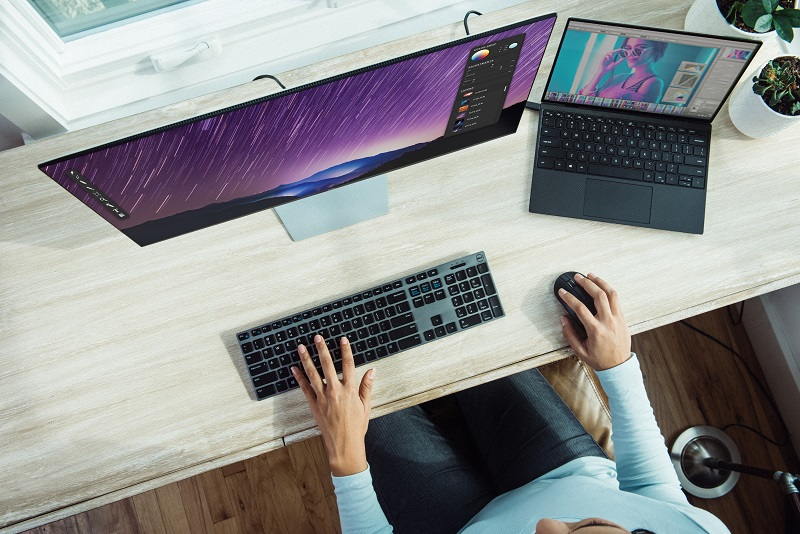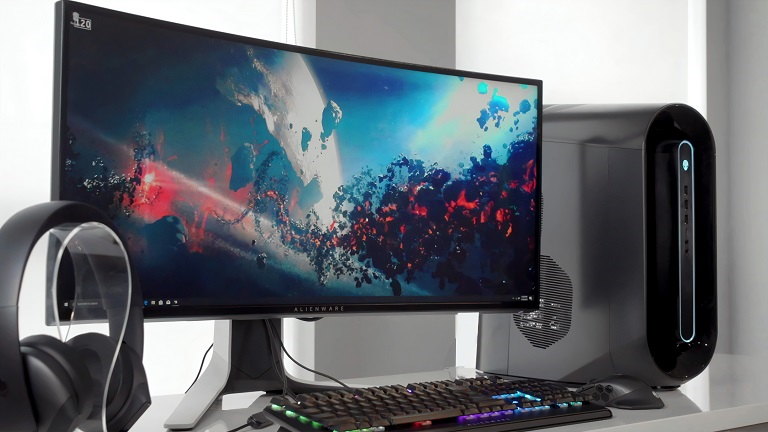When your computer has limited memory, loads notoriously slower than normal, or has an old processor, the first thing that comes to mind is to get a brand-new machine. Nothing wrong with that.
However, before you throw away your hard-earned coins for the trendiest and flashiest desktop or laptop in the market, consider upgrading it.
This means replacing some components with newer and powerful ones. Going this route seems impractical for the average Joe but it is actually the opposite. Understanding computer hardware is crucial for anyone who uses a computer, whether for personal or professional purposes.

This comprehensive, SEO-optimized guide will delve into what computer hardware is, when it’s time for an upgrade, whether upgrading or replacing a PC is the better option, and the importance of hardware in the digital age.
What is Computer Hardware?
Computer hardware refers to the physical components that make up a computer system. This includes the central processing unit (CPU), hard drive, RAM (Random Access Memory), motherboard, graphics card, and other physical elements.
Unlike software, which consists of code and programs that run on a computer, hardware is tangible and plays a vital role in executing software instructions.
6 Reasons to Upgrade Your Computer Hardware Rather Than Buying a New One
To keep you posted, here is a quick overview of the top 6 reasons why you should consider upgrading your PC instead of buying a new one.
1. Save Bucks
First things first, upgrading your hardware is way cheaper than building a PC from scratch or getting a new one. According to Business Daily, laptops cost $300 and $3000 while desktop PCs range between $400 and $3,500.
If you want a computer with good specs, expect to pay upwards of $1500. Granted, you can get one under $500 but chances are you will upgrade the RAM, GPU, and everything else to handle today’s power-hungry tasks.
Let’s consider an upgrade: A 16GB RAM costs about $100, a decent GPU that can support most of today’s games costs less than $300. A 250 GB SSD retails at about $50 on Amazon.
This means that with less than $500, you can upgrade your machine to a powerful gaming PC that would have cost upwards of $2000. If you are looking to save more money, upgrade your machine rather than getting a new one.
2. Better Hardware Quality
When you buy a computer, you have no idea what goes in there. The manufacturer basically decides the components used to build the PC. This means they can select poor-quality hardware parts from unknown brands.
On other hand, if you decide to upgrade, the ball is in your court. You get to decide the quality of RAM, GPU, motherboards, and storage drives to use. With all the top IT brands churning out quality hardware parts every year, you will always get quality stuff for affordable rates.
3. The Choice is Up to You
The third reason to upgrade rather than buy is that it gives you more choices. Again, when you purchase, the manufacturer calls the shots on everything. They get what works best for them. If you upgrade, you decide what suits you best, not the manufacturer.
The market comes with a gazillion RAM modules, processors, graphic cards, motherboards, and storage drives. You have the option of choosing your desired brand, capacity, size, you name it.
4. Eco-friendliness
Care about the environment? You should. The Ozone layer is ever being depleted because of too many toxic gases in the atmosphere. People are exposed to all kinds of diseases because the wrong pollutants fill the air.
By upgrading, you reduce the chance of toxic waste to the environment by one computer. If Verge statistics are anything to go by, 53.6 million metric tons of e-waste (waste from discarded computers, phones, appliances, and other gadgets) were generated in 2019.
When you discard your computer, the parts leak toxic chemicals and metals including lead and mercury. Thankfully, there are programs aimed at recycling computers and gadgets. If you must buy a new machine, consider using such a program to dispose of the PC in an appropriate manner.
5. Focus on What is Important to You

When you upgrade your machine, you choose what is important to you and what is unnecessary. For example, if you are not a gamer, there’s no need of buying a very powerful GPU or 30GB RAM.
Perhaps you just want to store a lot of stuff on the PC and therefore need plenty of disk space. Unfortunately, manufacturers are after pleasing the masses. As a result, they look for a sweet spot that will fulfill a little of everything.
6. Gives You A Grasp of Things
By upgrading, you know what goes into building your PC, says Boost Hardware. If you run into an issue in the future, you can tell what’s going on and what to do about it. Oppositely, if you buy, you are always at the mercy of your manufacturer who may be a continent away.
When Should I Upgrade My Computer Hardware?
Knowing when to upgrade your hardware can be a tricky decision, but there are some telltale signs to watch out for:
- Slow Performance: If your computer takes an eternity to boot up or struggles with everyday tasks, an upgrade may be due.
- Incompatibility: New software and applications often have hardware requirements. If your system can’t meet them, it’s time for an upgrade.
- Frequent Crashes: Hardware failures can lead to system crashes. If this is a common occurrence, consider an upgrade.
- Limited Storage: Running out of disk space can significantly hamper performance.
- Outdated Components: Technology evolves rapidly. If your hardware is more than 5 years old, you might miss out on newer, more efficient functionalities.
Is it Better to Upgrade or Replace a PC?
Upgrade
Pros:
- More cost-effective in the short term
- Allows for targeted improvements (e.g., better RAM or a new GPU)
- Environmentally friendly, as fewer components are discarded
Cons:
- Potential compatibility issues
- May offer limited performance boosts
Replace
Pros:
- Latest technology and features
- Simplifies the process: no need to deal with individual components
- Generally comes with a new warranty
Cons:
- More expensive upfront
- Waste of functional components
So, is it better to upgrade or replace? The answer largely depends on your specific needs, the age of your current system, and your budget.
Why is Computer Hardware Important?
- Execution of Software: Without hardware, software would be a collection of code with no place to run. Hardware acts as the foundation for all operations.
- Data Storage: Hard drives and SSDs provide the essential service of storing all types of data, from system files to personal photos.
- Speed and Efficiency: Better hardware translates to faster and more efficient systems, impacting everything from boot time to software performance.
- Connectivity: Network cards, Bluetooth adapters, and other hardware components are crucial for connecting with the external world.
- User Experience: Graphics cards, sound cards, and other peripherals directly affect the quality of user interaction with the system.
Final Verdict
Should you upgrade or get a new computer? The former always beats the latter. Of course, if your machine is four or more years old or you want a larger laptop screen, you might want to consider buying rather than upgrading.
Understanding computer hardware is pivotal in today’s digital world. Knowing when to upgrade and weighing that against the cost and benefits of a full replacement can save you both time and money. Ultimately, computer hardware serves as the backbone of our digital lives, its importance extending far beyond mere machinery.
If you found this article helpful, share it with friends, family, or anyone looking to navigate the complexities of computer hardware. Sharing quality content helps us all make more informed decisions in this tech-driven world.



















